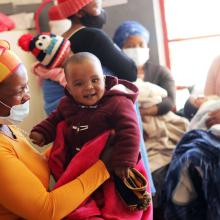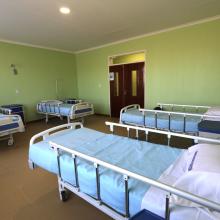Rural Initiative
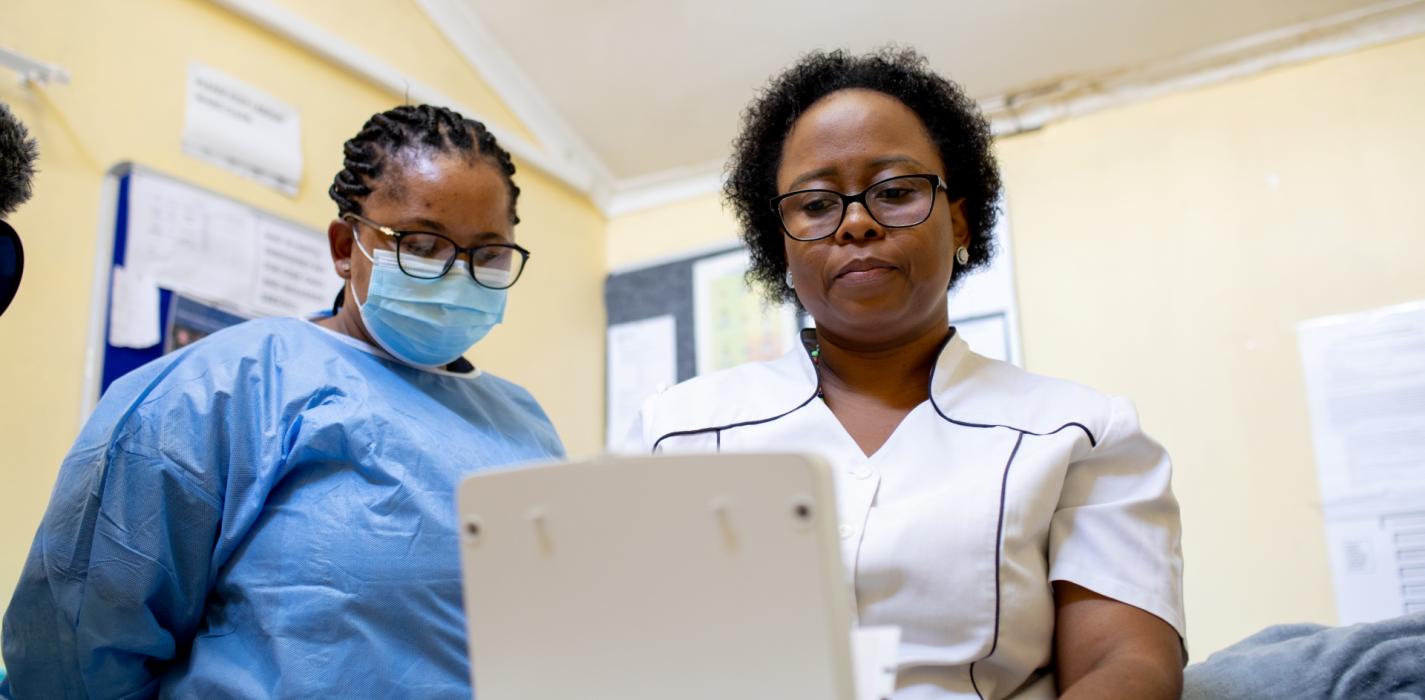
Rural Initiative (RI) was launched in 2006 to support HIV care and treatment in 7 rural health facilities; Nohana, Nkau, Bobete, Methalaneng, Manamaneng, Tlhanyaku, Lebakeng in the most hard-to-reach mountainous areas of the country. The health facilities are located in four districts of Mokhotlong, Thaba Tseka, Qacha’s Nek and Mohale’s Hoek.
Our Impact
Partners In Health Lesotho provides essential health services across seven rural health centers, ensuring access to quality care for underserved communities.
The current TB detection in Lesotho is 42% while the TB detection in PIH Lesotho supported facilities is at 93% due to the five 5s investment.
-
90 000Population We Serve
For Primary Health Care across PIH-supported sites since 2006
-
312Villages
312 villages across the seven Primary Health Care PIH supported health facilities
-
454,847TB Screenings
Across all sites in the country, from 2020
PIH Lesotho has expanded to provide comprehensive primary health care including Tuberculosis (TB), Maternal and Child Health (MCH), non-communicable diseases (NCDs), and Mental Health services. Our approach also prioritizes preventive services such as immunization, health education, and nutrition programs, strengthening the foundation for healthier communities.
We use bottom-up strategy, aligning disease burden in the catchment area with resources
RI’s provide comprehensive primary health care services demonstrating a practical approach to Universal Health Coverage.
Services include
- TB
- HIV
- Maternal Health Care (MCH)
- Outpatient Department (OPD)
- Non-Communicable Diseases (NCDs)
Improving Tuberculosis Screening at Primary Health Care Level
PIH Lesotho has supported the Ministry of Health to introduce digital x-ray machines, computer aided detection (CAD), and a telemedicine system in rural, hard-to-reach health centers to fill the gap in TB case finding. The telemedicine system has been very helpful to provide remote feedback from senior TB clinicians to the frontline clinical teams.
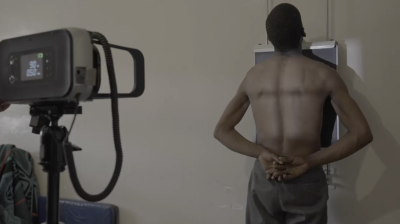
TB program assistant attending TB patient Maqholo Makao using a a digital x-ray at Tlhanyaku health centre.
HIV Testing and care
To achieve the UN global target of 95-95-95, PIH Lesotho offers HIV services such as testing, counselling, and linkage to care for HIV. PIH Lesotho has implemented additional interventions in collaboration with the ministry of health including:
- HIV Self-testing
- Targeted testing for high-risk groups
- Strategies for adherence to treatment: Multi Months Dispensing, Community ART groups
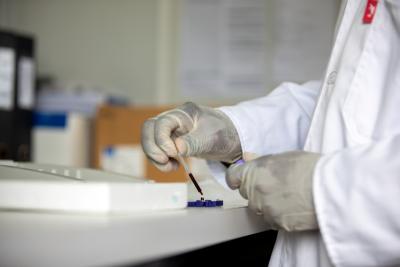
HIV testing at mini-lab at Bobete Health Center, Lesotho
PIH Lesotho has been supporting the Ministry of Health to screen people for HIV, focusing on testing high-risk groups and their partners
Maternal and Child Health
Maternal mortality in Lesotho is a significant issue, with 566 deaths per 100,000 live births, exceeding the regional average. PIH Lesotho is working to address this by constructing maternal waiting homes in remote areas with limited access to antenatal care and safe delivery services. These homes represent a transformative approach to maternal care, addressing overcrowding and space constraints. PIH Lesotho’s initiative is expected to reduce home deliveries and associated risks, symbolizing hope and a shift towards safer childbirth and improved maternal health across Lesotho.
Child Health Care Transformation in Lesotho
Dream Warmers
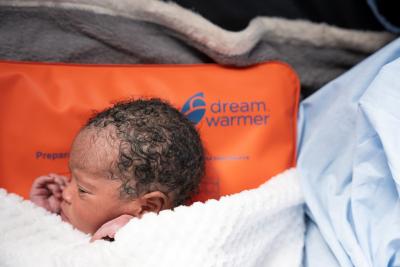
Newborn rests on a warming mat to keep her warm at the Tlhanyaku Health Centre maternal waiting home.
The Dream Warmer is a reusable, non-electric device designed to prevent hypothermia in newborns, especially in areas with limited medical resources. It uses a heat-storing material that, when warmed in hot water, holds a constant temperature of 37°C. Once placed in the accompanying pouch, it provides consistent warmth for infants, particularly premature or low-birth-weight babies. This simple and portable solution offers a lifesaving alternative where access to conventional incubators is limited, improving neonatal care in hospitals and clinics.
Butterfly Ultrasound
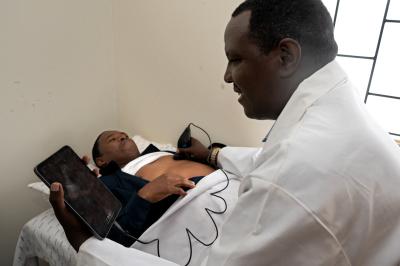
Dr. Melino Ndayizigiye, testing out butterfly ultrasound equipment at oncology building at Partners In Health’s Botšabelo Hospital in Maseru, Lesotho.
The Butterfly iQ+ is a handheld ultrasound device designed for whole-body imaging using a single probe. With advanced Ultrasound-on-Chip technology, it offers enhanced imaging speed and quality while being energy efficient. Compatible with iOS and Android, the iQ+ allows medical professionals to conduct scans using over 20 presets across various fields, including emergency medicine and cardiology. Built to withstand tough clinical conditions, it combines portability and high performance for diverse healthcare settings.
Solar Powered Radiant Baby Warmers
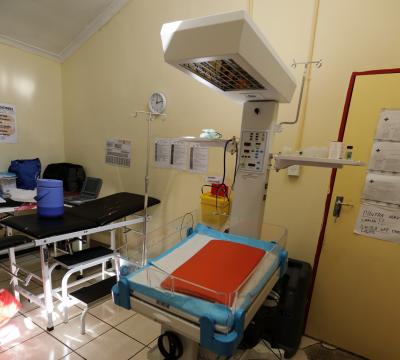
Infant Radiant Warmer at Bobete Health Centre
A neonatal radiant baby warmer, is a medical device used to stabilize the body temperature of newborns, especially in critical care or delivery settings. It uses radiant heat to keep infants warm while providing access to medical procedures. The warmer includes features like adjustable heat settings, safety alarms, and a mobile base for easy positioning, making it essential for managing the temperature of premature or ill babies during treatment.
CTG Machine
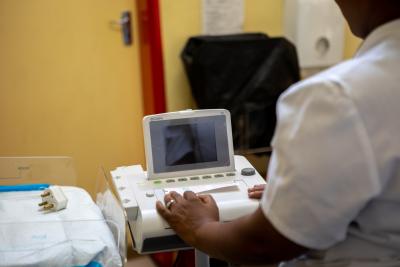
Nursing assistant run a CTG at Bobete Health Center in Lesotho.
Cardiotocograph or electronic fetal monitor, is a device used to monitor a baby’s heart rate and the mother’s uterine contractions during pregnancy and labor. It helps healthcare professionals assess fetal well-being and detect any potential signs of distress.
Outpatient Department
Outpatient visits refer to patients who come to facilities due to acute conditions or illness.
The top four conditions of OPD visits include :
- Respiratory
- Musculoskeletal
- Skin
- Ear, Nose, & Throat
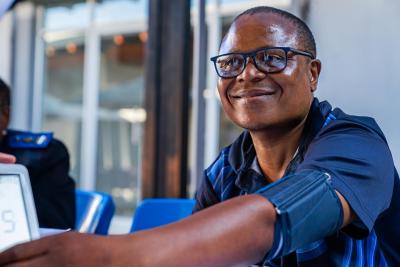
Tseliso Khoaeane is screened for blood pressure and diabetes by Partners In Health Lesotho nurse.
NCDs
PIH Lesotho has seamlessly integrated the screening and management of non-communicable diseases (NCDs) into existing primary health services. This strategic approach aims to reduce the high morbidity and mortality rates associated with non-communicable diseases.
The top four conditions of NCDs include :
- Hypertension (HTN)
- Diabetes (DM)
- Asthma
- Epilepsy
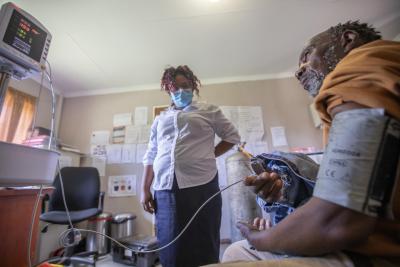
PIH nurse Limpho Nape with Motumi Tlali from Ha Mokhoro Village in Lesotho travels Methalaneng Health Center for his routine health checkup pertaining hypertension and asthma.
Community Outreach Activities
PIH Lesotho provides outreach services to improve healthcare access for people unable to visit health facilities due to illness or socioeconomic barriers. These efforts focus on remote villages to ensure healthcare reaches the most vulnerable and hard-to-reach communities. Each month, the PIH Lesotho team conducts six community outreaches, four home visits, and two overnight service visits, bringing care directly to those in need. By focusing on these areas, PIH Lesotho strives to bridge the healthcare gap and support communities with limited access to essential services.
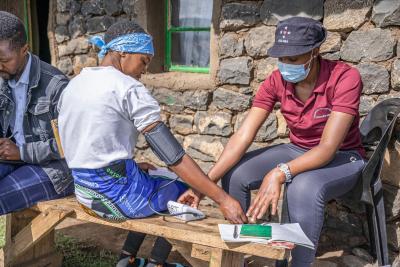
‘Mareatile Leqheka from Matsoeteng village getting services from Moliehi Matooane of PIH during outreach activity at Matsoeteng Village.
